The first step to any successful PPC campaign is finding search terms that your target audience is actually searching for.
This is where PPC keyword research comes into play — finding those certain phrases, search terms, and keywords that have the right intent and monthly search volume to make running a PPC campaign worthwhile.
In this article, we’ll explain how we are able to conduct PPC keyword search for our clients to ensure they’re targeting the right people at the right stage of their buyer’s journey.
PPC competitor analysis
Instead of beginning a new PPC strategy from scratch, it’s more advantageous to look to a client’s competitors as a starting point.
This approach makes sense, and is followed by all PPC professionals because it saves time and is more effective — your competitors have already done the leg work to identify keywords and try out different PPC approaches. By analyzing their approach, you can learn what is working, what’s not working, and find new keywords that you may not have considered.
Don’t feel bad about spying on your competitors — it’s part of the PPC game and is recommended as the first step of any PPC campaign.
Determining who your PPC competitors are
You’ll likely already know which companies are similar to yours that are targeting the same audience. Perhaps their websites are getting more traffic and have a higher Google ranking than yours. These are good reasons to begin a PPC campaign — to position yourselves above your competitors and win the traffic they’re trying to receive.
The process will begin by listing your top competitors so we can begin the next step of running a competitive keyword analysis.
Running competitive keyword analysis
Because the PPC world is a crowded space, it means you will likely be competing over the same paid keywords as your competitors. Competitive analysis helps to find gaps and opportunities in your competitors’ strategies so you can find underused keywords and search terms to stand out in paid searches.
The process begins first by identifying your competitors, then going more in-depth to analyze and spy on them.
Spying on the competition
Using PPC and SEO tools, PPC professionals are actually able to spy on the competition and take a deeper look into their PPC strategy, including:
- What keywords they’re bidding on
- What keywords they’re ranking for
- Your competitors’ top paid keywords
- The cost per click (CPC)
- Monthly cost of ads
With this information, you can begin crafting your own PPC campaign to find new keywords, or adjust your budget to spend more on the search terms your competitors are using.
Define the search intent for your ads
It’s not enough to bid on the keywords that your audience is using unless you understand the searcher’s intent, known as user intent.
Otherwise, you’ll be paying for ads that get clicks, but don’t covert because the terms are targeting people in the wrong phase of the buyer’s funnel or people who have no intention of buying, but are “just browsing.”
By understanding the different levels of search intent, PPC professionals can craft campaigns to create ads for each level of intent, to reach buyers throughout different stages of the buyer’s journey.
There are four levels of search intent:
Informational intent
The most basic, general Google searches are usually considered information intent.
For example, “how to draw” or “what is NFT?” are informational searches where users are trying to find a simple answer to a simple question.
Navigational intent
When people Google search a website, instead of typing the website in directly to the URL, that’s considered a navigational intent. For example, typing into a Google search “youtube” as opposed to just typing youtube.com in the URL box.
When it comes to navigational intent, users already know exactly what they’re hoping to find, and typing it into Google is easier for them.
Transactional intent
Transactional intent is when the searcher is ready to buy a product and is looking for the best online store to purchase from.
For example, searching for “Nintendo Switch bundle” has more intent than just searching for “Nintendo Switch” because the bundle is a specific product, while “Nintendo Switch” is a more general term and topic online.
Commercial investigation
Commercial investigation is the consideration phase when a user is comparing and researching potential products to buy.
Search terms such as “best skin care products 2022” show that the buyer is considering and looking for new products to purchase, but isn’t ready to buy quite yet.
Expand your list with keyword research
Finding your competitors’ keywords is a helpful first step, but you’ll need additional keyword research to find even more opportunities to target your users.
PPC professionals will extend the keyword search started during competitive keyword analysis. This is referred to as PPC keyword expansion.
Using keyword planning tools, such as Google’s Keyword Planner, SEMRush, SpyFu, and more, PPC professionals can start typing in the basis keywords you’re targeting, this is referred to as a “seed list.”
The seed list may be 20 to 30 keywords you’ve come up with off the top of your head or using a combination of search terms from your competitors.
Once this list has been entered, the PPC tools will start generating a list of more keywords that are related search terms, as well as organizing keywords into different topics and categories.
Start with what’s closest to the money
If you’re unsure of where to start with your PPC campaign, start by advertising your most lucrative products or services.
For lead generation campaigns, which are popular for PPC ads, start by advertising the most lucrative products or services you offer. There’s no point in going after small fish — so going big and targeting the users will bring in the most money.
Group keywords into ad groups
Now that you’ve determined the keywords and who you will be targeting, it’s time to start organizing the keywords into targeted Ad Groups to reach a very specific audience online.
For reference, the overarching hierarchy of a Google Ads campaign looks like this:
- At the top is the user’s account. A user can run up to 10,000 campaigns per account.
- In each campaign, is a subset of ad groups. A user can run up to 20,000 ad groups.
- In each ad group, there are specific keywords. A user can use up to 20 keywords in each ad group.
- Also in each ad group are specific ads. A user can use up to 50 text ads in each ad group.
As you can see, there’s plenty of room for optimization, segmentation, and experimentation to find the right combination of keywords, campaigns, ad groups, and ads.
Once the keywords have been grouped into Ad Groups, it’s time to sit back and collect data to see which ad groups are effective, and which aren’t, so the process can be refined and optimized for the highest success rates.
Consult with Denver PPC for consistent keyword research and optimization
Denver PPC is a certified Google Partner company that specialized in pay-per-click (PPC) advertising.
Our team of account managers is all Google Ads certified with extensive experience managing campaigns in various industries and competitive online spaces.
We also manage Facebook Ads and offer white label PPC management to our clients.
Does your company already have a Google Ads account that needs help?
Contact us today to get your free 10-Point PPC Analysis Review to see how are PPC keyword search can help you reach your goals.





